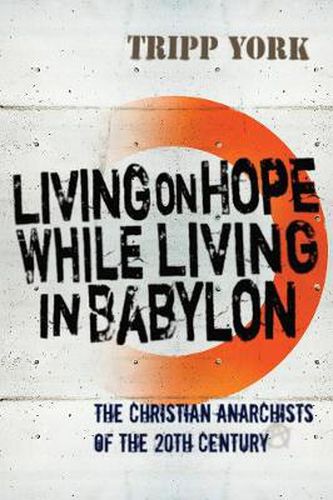Readings Newsletter
Become a Readings Member to make your shopping experience even easier.
Sign in or sign up for free!
You’re not far away from qualifying for FREE standard shipping within Australia
You’ve qualified for FREE standard shipping within Australia
The cart is loading…






This title is printed to order. This book may have been self-published. If so, we cannot guarantee the quality of the content. In the main most books will have gone through the editing process however some may not. We therefore suggest that you be aware of this before ordering this book. If in doubt check either the author or publisher’s details as we are unable to accept any returns unless they are faulty. Please contact us if you have any questions.
Though Christendom has come to an end, it appears that old habits die hard. Jesus promised his followers neither safety nor affluence, but rather that those who come after him should expect persecution. Christian discipleship and tribal nationalism, however, despite the legal separation of church and state, continue to be co-opted into the nation-state project of prosperity and security. This co-option has made it difficult for the church to recognize her task to be a prophetic witness both for and against the state. That only a small pocket of Christians bear witness against such an accommodation of Christian practice is disconcerting; and yet, it breeds hope. In Living on Hope While Living in Babylon, Tripp York examines a few twentieth century Christians who lived such a witness, including the Berrigan brothers, Dorothy Day, and Eberhard Arnold. These witnesses can be viewed as anarchical in the sense that their loyalty to Christ undermines the pseudo-soteriological myth employed by the state. While these Christians have been labeled pilgrims, revolutionaries, nomads, subversives, agitators, and now, anarchists, they are more importantly seekers of the peace of the city whose chief desire is for those belonging to the temporal cities to be able to participate in the eternal city–the city of God. By examining their ideas and their actions, this book will attempt to understand how the politics of the church–an apocalyptic politic–is necessary for the church to understand her mission as bearer of the gospel.
$9.00 standard shipping within Australia
FREE standard shipping within Australia for orders over $100.00
Express & International shipping calculated at checkout
This title is printed to order. This book may have been self-published. If so, we cannot guarantee the quality of the content. In the main most books will have gone through the editing process however some may not. We therefore suggest that you be aware of this before ordering this book. If in doubt check either the author or publisher’s details as we are unable to accept any returns unless they are faulty. Please contact us if you have any questions.
Though Christendom has come to an end, it appears that old habits die hard. Jesus promised his followers neither safety nor affluence, but rather that those who come after him should expect persecution. Christian discipleship and tribal nationalism, however, despite the legal separation of church and state, continue to be co-opted into the nation-state project of prosperity and security. This co-option has made it difficult for the church to recognize her task to be a prophetic witness both for and against the state. That only a small pocket of Christians bear witness against such an accommodation of Christian practice is disconcerting; and yet, it breeds hope. In Living on Hope While Living in Babylon, Tripp York examines a few twentieth century Christians who lived such a witness, including the Berrigan brothers, Dorothy Day, and Eberhard Arnold. These witnesses can be viewed as anarchical in the sense that their loyalty to Christ undermines the pseudo-soteriological myth employed by the state. While these Christians have been labeled pilgrims, revolutionaries, nomads, subversives, agitators, and now, anarchists, they are more importantly seekers of the peace of the city whose chief desire is for those belonging to the temporal cities to be able to participate in the eternal city–the city of God. By examining their ideas and their actions, this book will attempt to understand how the politics of the church–an apocalyptic politic–is necessary for the church to understand her mission as bearer of the gospel.